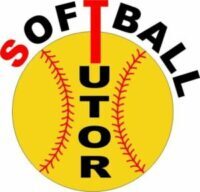
Most softball coaches will be coaching children and youth who are not only developing as softball players but also as overall athletes. Our most common goal of course is to make them into better softball players. We also know that all of our players will make mistakes and experience disappointments in their performance during games and even in practices. How their softball performance failure effects them will depend on our responses to their actions and what they do with them.
What we need to focus on in this discussion is performance. Performance is part of a process that results in an outcome. It is critical that we keep that in mind as we are considering our feedback with the team. To discuss how many runs the opponents got and how the team did not defend the batters correctly, talk about how the ball was not getting to target because they were rushing their throws. Or how they were anticipating where the runner was going instead of fielding the ball first. These are processes that are a part of the performance.
To focus on the outcome is the beginning of a stressful performance that creates anxiety and just adds to the pressure which can create sperfoam. It is hard to believe I know, but as I have said many times, focus on the process and let the outcome take care of itself. Ask any coach who has been able to do that successful with a good program and they will tell you how successful their team and experience was.
Softball Performance Failure Responses
The most productive way to respond or react to errors or a less than desirable softball performance, is to make sure that we attribute it to the right cause. Is it their effort that is lacking or do they not have the needed skills and abilities to execute the tasks successfully. The most common cause that coaches will attribute to a poor performance is effort or lack of mental focus or concentration. How the player responds to your observation will depend on if the she feels that she has the right skills to do the job.
For example. If you tell a player that she is not paying attention or her head is just not in the game because she is having trouble fielding the ball during a game, does she actually have the skills to field the ball under the pressure of having to play well? If she believes that she does not have the ability, she will likely not be motivated to “try harder”. It might make her feel even more incapable than she originally felt when the ball was coming at her with the runner speeding towards first base.
It is important if you are going to refer to effort as a contributing factor to their failure, to make sure that your team has been reassured that they do have the skills for a better outcome. It is not recommended that you refer to effort as the cause of an error with 10U children unless you know that they feel very confident in their abilities to execute the skill.
If the performance failure is a result of skill deficiency then it is what we refer to as error detection and correction that needs to happen. For example. If the player missed the ground ball because she did not move her body in front of it, show her how to shuffle step or cross over step to get in front of the ball so that she can get into position to field it correctly. If she has already been taught how to move to the ball, use a cue that you might have previously established to remind her of that part of the skill.
Effects of Softball Performance Failure
If the you can reinforce correct execution and help your team to feel a sense of optimism, then you will see her re focus and work at getting it right immediately. If she feels like she is not doing the job right or that you are disappointed in her, the next response might be to begin telling herself that she is not good enough and her confidence will decrease.
The effects of softball performance failure can also be considered at the beginning of the season before the first game is even played. By teaching your team mental skills such as goal setting, visualization, relaxation , cue words and self talk, they will be able to devise strategies that will take them through errors positively and without the negative effect that most players will experience.
By teaching the players to self regulate, especially during performance failure, they will not be tempted to look to the coach to reassure them that they are capable of playing well. Not only does this tool help them to get back in the game and keep their emotions in check, but it also decreases the amount of time it takes to get into the next play. Sometimes the game happens quickly and there is no time to get approval from coaches in order to feel better. If they also know that you are behind them all the way, even during performance failure, and that you trust their abilities, they don’t even need to look to you during a game unless you are relaying important information.
On the other hand, if you yell or keep reminding them of the importance of the play, you have not only taken away that refocusing tool of your confidence in them, but you have also added to the possibility that they will experience performance failure. They need to know from you that you believe in them and that you know that even if their skills are not yet up to par, if they can be persistent in their softball skill development and put in the effort, they will be successful.
